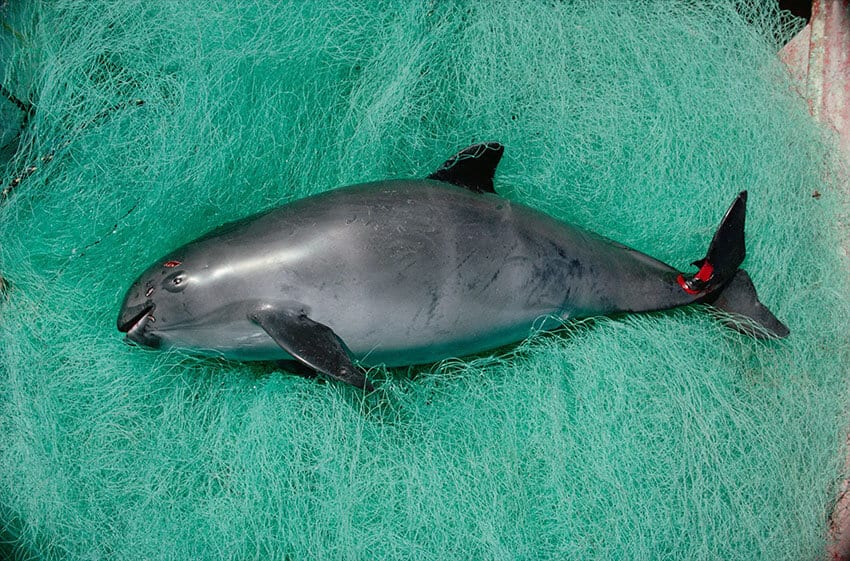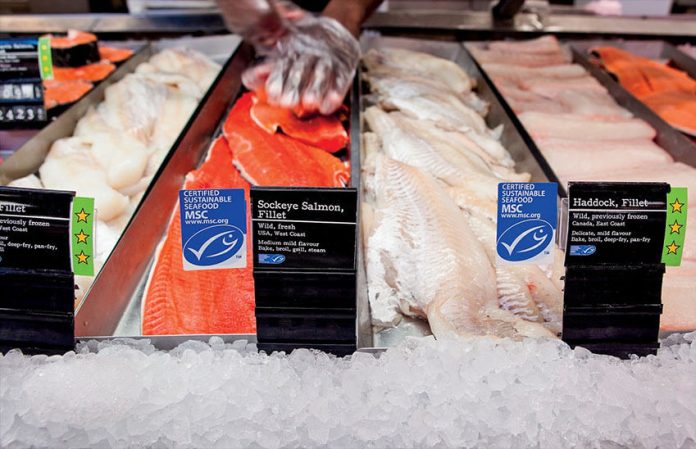A prominent Mexican conservationist has highlighted the importance of sustainable fishing to the ongoing survival of the vaquita marina, a critically endangered porpoise that is endemic to the upper Gulf of California.
Lorenzo Rojas-Bracho, director of the VaquitaCPR (Conservation, Protection and Recovery) Project, told the newspaper Zeta Tijuana that the Marine Stewardship Council’s blue label needs to be promoted in Mexico as part of measures to protect the vaquita, of which as few as nine are believed to remain.
“The blue MSC label is only applied to wild fish or seafood from fisheries that have been certified to the MSC Fisheries Standard, a set of requirements for sustainable fishing,” Marine Stewardship Council says on its website.
“… Sustainable seafood comes from fisheries that catch fish in ways that ensure the long-term health of a stock or species and the well-being of the ocean.”

Rojas-Bracho noted that vaquitas become entangled and die in gillnets used to catch both totoaba — a fish prized in China for its swim bladder — and shrimp.
If businesses such as supermarkets and restaurants only bought and sold blue label seafood, fishermen who want to sell their catch here would presumably be dissuaded from using such nets. Gillnets — which also entangle marine species such as sea turtles and small sharks — are already banned in the upper Gulf of California, but enforcement has been lax.
Rojas-Bracho observed that the “blue market” for sustainable seafood is already well developed in the United States and Europe. But the same can’t be said about Mexico.
However, the conservationist believes there is an opportunity to develop a sustainable seafood market that is a source of national pride. According to the Marine Stewardship Council, four Mexican fisheries are already MSC certified: a red lobster fishery, two small open sea fisheries and a tuna fishery.
“The Mexican market is … increasingly interested in sustainable seafood products,” the non-profit organization says on its website.
“In collaboration with the Mexican campaign PescaConFuturo, the MSC has highlighted the importance of maintaining healthy fish stocks to guarantee food and economic security for future generations and to safeguard the natural wealth of the Mexican waters.”
With reports from Zeta Tijuana
